Our History: Promoting Human Dignity
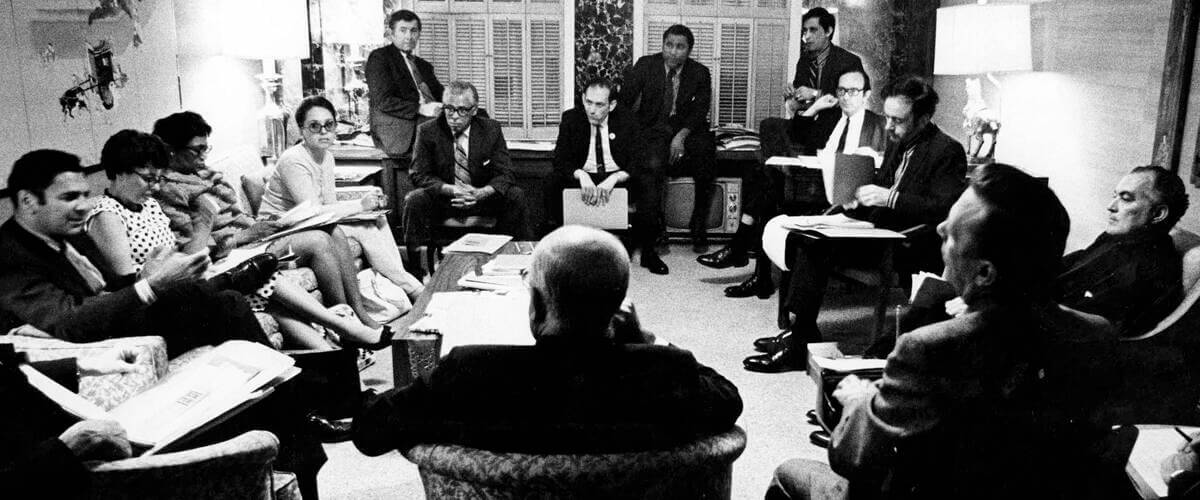 Center for Civil Rights advisory board meeting, 1973
Center for Civil Rights advisory board meeting, 1973
"The more one contemplates the essential oneness of humanity, our common hopes and dreams on this smallish planet, so hopelessly divided racially, culturally, religiously, and politically, the more one hungers for moral leadership..."
Rev. Theodore M. Hesburgh, C.S.C.

Founding a Civil Rights Center
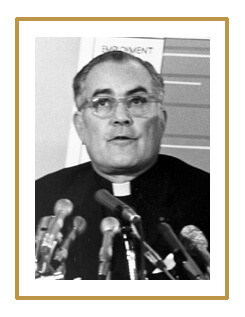
Shortly after President Richard Nixon requested his resignation from the U.S. Commission on Civil Rights in 1972, Rev. Theodore M. Hesburgh, then president of the University of Notre Dame, made a case for the renewal of moral leadership. In a boldly articulated statement of April 1973, Fr. Hesburgh asserted that such leadership must be grounded in a deep concern for the powerless.
Fr. Hesburgh may have been reflecting on his own university and its mission, for that same year he founded a center at Notre Dame dedicated to these principles. After 15 years of reflection and research on civil rights as Commissioner and then Chairman of the U.S. Commission, Fr. Hesburgh founded The Center for Civil Rights as a place of learning to advance justice and dignity for all people.
“It is time to begin anew, perhaps with more realism and less naivete this time, to commit this country to be what it professes before all the world to be. If this means afflicting the powerful, the smug, the leaders who do not lead, the complacent, those who have never had it so well, so be it.”
Rev. Theodore M. Hesburgh, C.S.C.

A Dedication to Justice
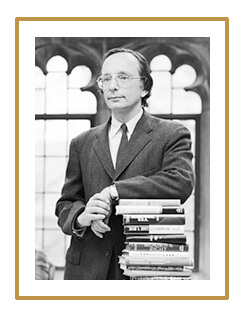
Fr. Hesburgh believed that our highest aspirations should be enacted in concrete terms, by changing the legal structures that shape opportunities. To this end he brought with him from Washington not only the papers and books related to the civil rights struggle in America, but also Howard Glickstein, the U.S. Department of Justice attorney who had worked as Staff Director of the U.S. Commission on Civil Rights. Glickstein became the Center’s first director.
In its first year the Center sponsored a major conference commemorating the 20th anniversary of Brown vs. Board of Education, which included a lecture by Sargent Shriver, former director of the Peace Corps; submitted a brief to the United States Supreme Court in support of racially equitable admissions policies in law schools; and established a civil rights library, founded upon Fr. Hesburgh’s materials from the Commission.
"Throughout the world today, in free nations and in totalitarian countries as well, there is a preoccupation with the subject of human freedom, human rights. And I believe it is incumbent on us in this country to keep that discussion, that debate, that contention alive.”
United States President Jimmy Carter

Promoting Civil and Human Rights
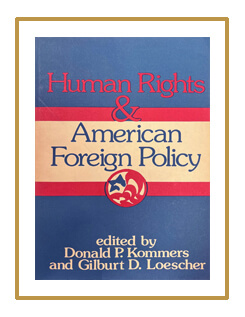
By 1976 the Center had begun to fully embrace the field of international human rights, and under the guidance of the Center’s second director, Donald Kommers, new areas of research were being tapped. Kommers organized a major conference exploring “Human Rights and American Foreign Policy.” The three-day event began with a full day of sessions dealing with the philosophical and ideological underpinnings of a human rights discourse, before turning attention to the connections between human rights and foreign policy.
A dedication to studying and promoting the rights of all people, both in the United States and around the globe, had taken hold. By the early 1980’s, the name of the center had begun to appear in printed materials as “The Center for Civil and Human Rights.”
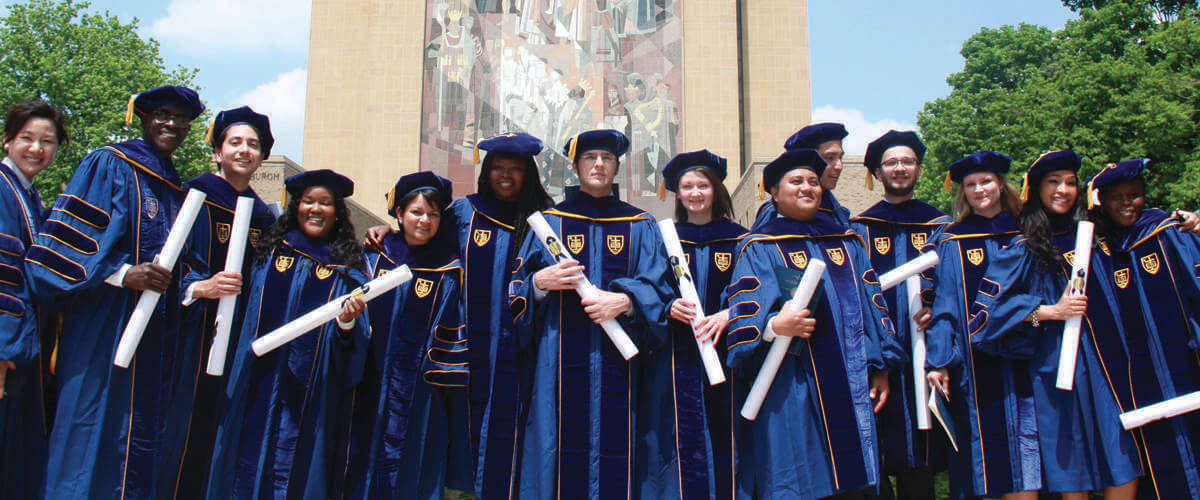
“We are concerned about the development, implementation and protection of human rights in order to protect and enhance human dignity. This is indeed the goal of Catholic social teaching – the realization of dignity of the human person…”
Fr. William Lewers, C.S.C., director of the Center for Civil and Human Rights, 1988

Educating Human Rights Lawyers
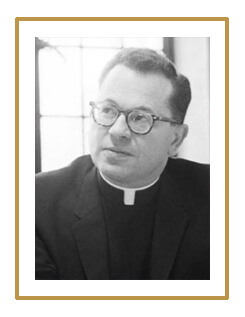
Fr. Bill Lewers, a former Notre Dame teacher and Director of the Office of International Justice and Peace for the United States Catholic Conference, returned to Notre Dame in 1988 as the third director of the Center for Civil and Human Rights.
Inspired by conversations between Fr. Hesburgh and Richard Goldstone, a prominent South African jurist concerned with ending apartheid, the Center began a master’s program in international human rights law under Fr. Lewers' leadership. With this new educational tool, the Center began training human rights lawyers from around the globe and sending them back to their homes to promote justice.
“The U.S. government rightly makes human rights a centerpiece of its foreign policy…Yet those postures would carry a lot more moral weight if they were coupled with a sincere and demonstrable commitment to making international human rights a domestic reality as well.”
Juan Méndez, director of the Center for Civil and Human Rights, 1999

A Broader Scope
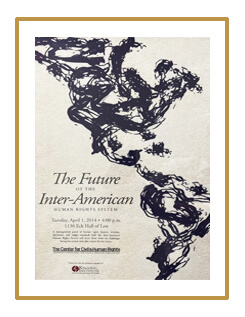
Throughout the next two decades the Center initiated projects to place interns at the International Tribunal for Rwanda, conduct research and advocacy on accountability for gross human rights violations worldwide, and expand the defense of economic, social, and cultural rights within the Inter-American human rights system. The LL.M. program , now renowned for its leadership in human rights education, continued to attract lawyers from across the globe, and heightened interest in a variety of approaches to human rights issues was reflected in both the projects and leadership of the Center.
"We have to offer leadership because it's not just something we profess as a casual thing, it's our faith....We do believe deeply in these matters and they're a matter of our total profession of faith in the dignity of human beings."
Rev. Theodore M. Hesburgh, C.S.C.

A New Interdisciplinary Framework
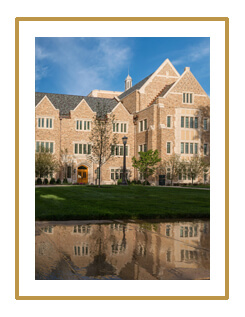
In October of 2014 Notre Dame announced the creation of its first new school or college in nearly a century, the Keough School of Global Affairs, dedicated to conducting research and education on the critical issues of international development, peace, human rights and governance. The Center became a constituent member of this new school, offering its expertise in justice and human dignity to help address the challenges of an increasingly interconnected world.
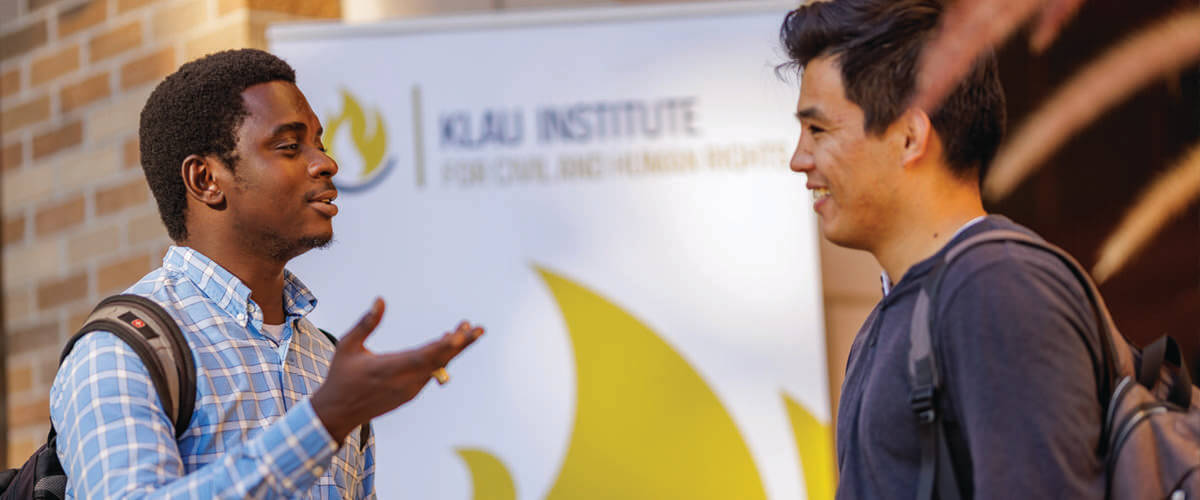
“The Klau Institute for Civil and Human Rights, which will educate countless generations of Notre Dame students and help train civil rights and human rights lawyers and advocates, is a gift to the University and to the world."
Scott Appleby, dean of the Keough School of Global Affairs

Fulfilling Our Mission

In 2018 the University of Notre Dame received a generous gift from the Klau family to endow the Center and assure its future growth, and in 2022 it became the Klau Institute for Civil and Human Rights. With its own undergraduate minor in civil and human rights and innovative programs that offer intellectual foundations for the work of anti-racism, the Klau Institute continues to fulfill Fr. Ted's founding vision.
